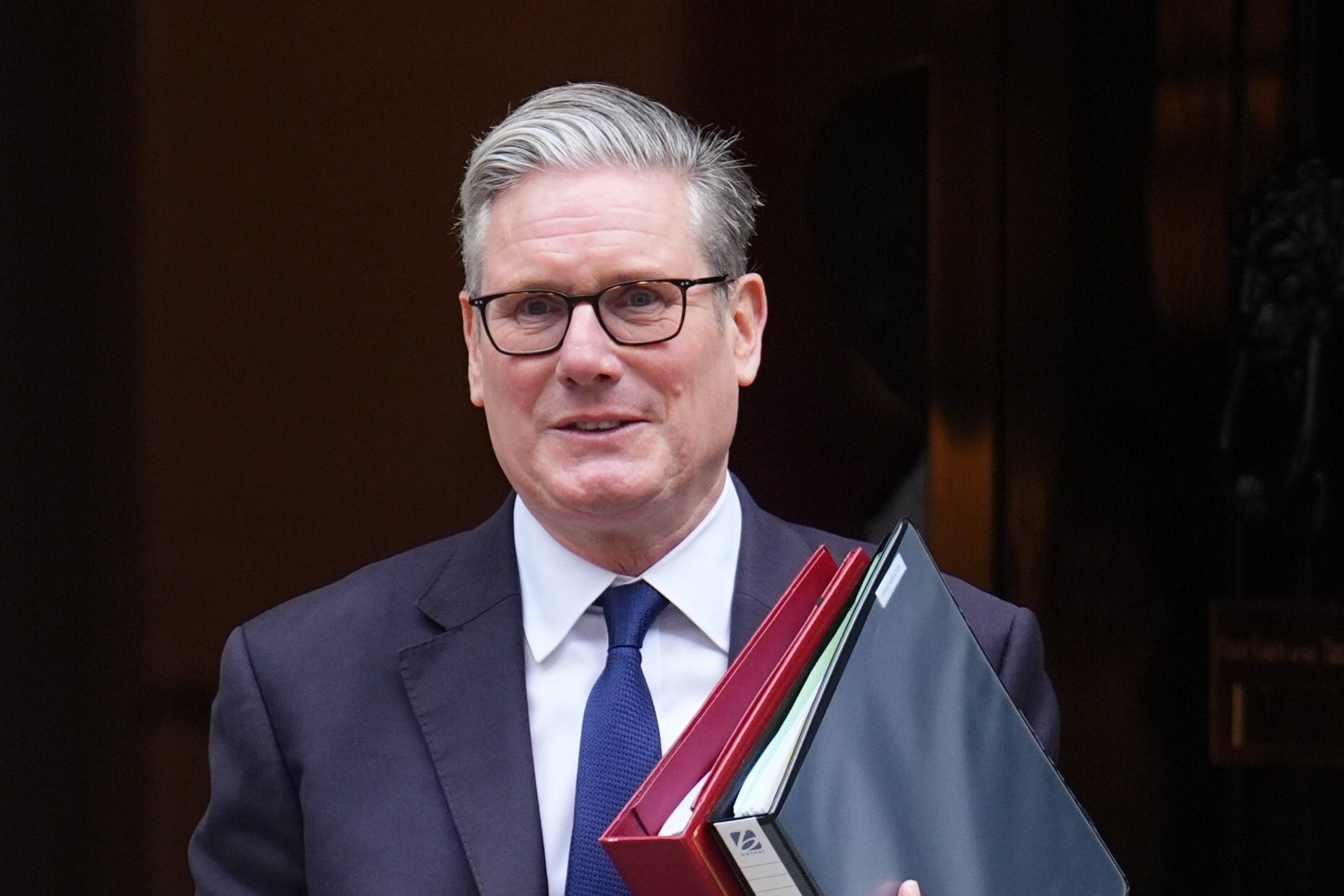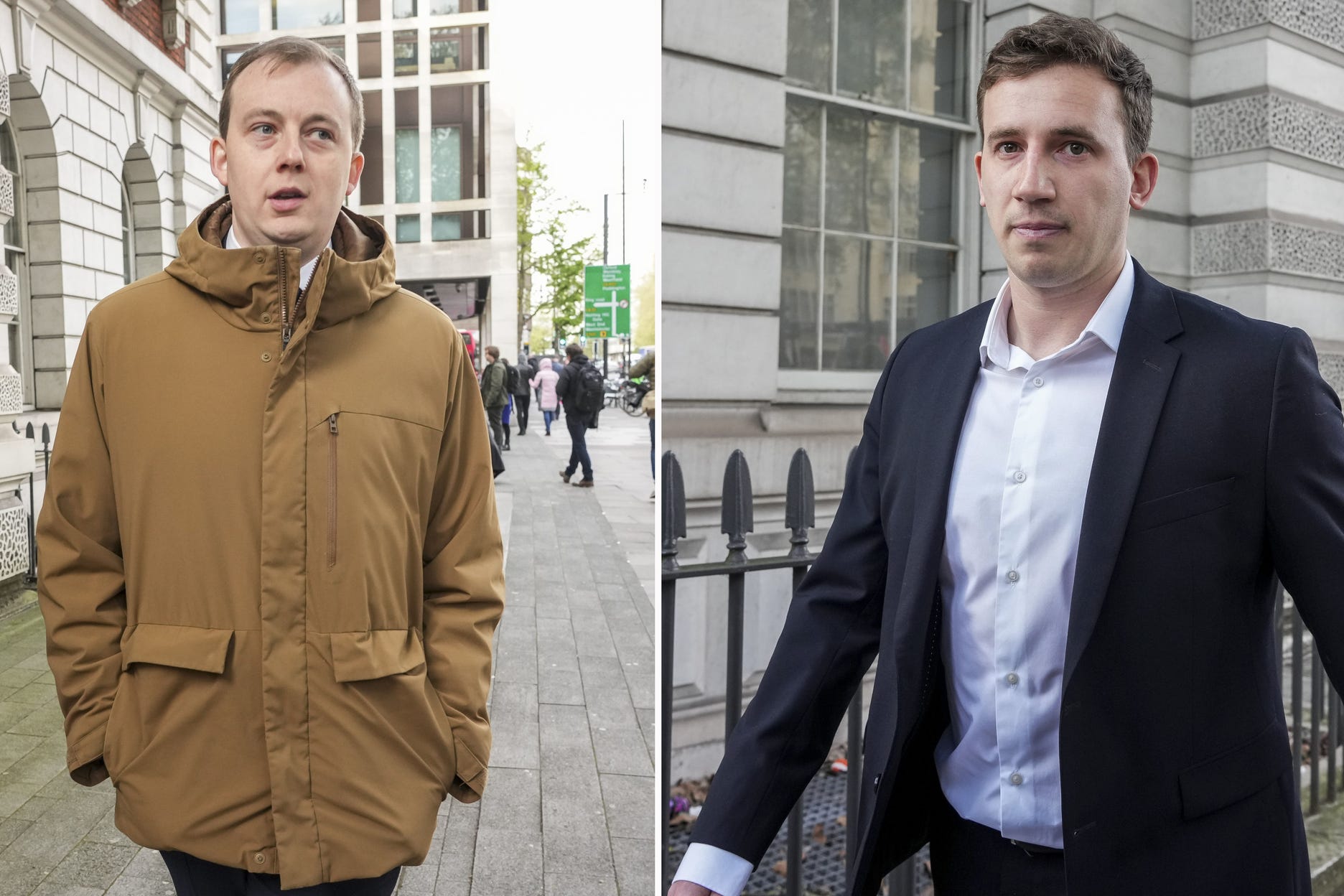The head of MI5 has revealed Britain thwarted an attack from China just this week, as he issued a stark warning over the daily threat to the UK posed by Beijing.
In an extraordinary intervention amid the fallout from the collapsed China spying case, Sir Ken McCallum said the case was a “strong disruption in the interest of the UK’s national security”.
He admitted he was “frustrated” the case had been allowed to collapse before going to trial, and highlighted further attempts by China to carry out “cyber espionage” and “interfere covertly in UK public life”.
Sir Ken’s comments will pile pressure on the prime minister to adopt a tougher stance on China, with Labour having been accused of jeopardising British interests to chase closer economic ties with Beijing.
His comments came as housing secretary Steve Reed delayed a decision on whether to approve a new Chinese “super embassy” in London, in the latest potentially embarrassing development for the government. Critics have said the embassy, on a site near the Tower of London, would effectively serve as a spying hub for Beijing, fuelling further espionage attempts by China.
In his speech at MI5’s London headquarters, the intelligence agency’s director general Sir Ken said that the UK needed to “defend itself resolutely” against China while also being able to “seize the opportunities” that having a relationship with Beijing brings.
“The UK-China relationship is, by its nature, complex, but MI5’s role is not: we detect and deal, robustly, with activity threatening national security,” Sir Ken said.
He highlighted attempts by China to carry out “cyber espionage”, “clandestine technology transfer”, efforts to “interfere covertly in UK public life”, and the “harassment and intimidation of opponents”, including pro-democracy activists.
“When it comes to China, the UK needs to defend itself resolutely against threats and seize the opportunities that demonstrably serve our nation,” he said.
It was a choice for ministers to decide where the balance lies, he said, “informed by expert security advice”.
Asked if he was frustrated by the collapse of the case against Christopher Cash and Christopher Berry, he said: “Of course I am frustrated when opportunities to prosecute national security-threatening activity are not followed through, for whatever reason.”
It emerged on Thursday that the government’s deputy national security adviser had repeatedly described the “threat” posed by China in witness statements, published on Wednesday night, amid the row over the collapse of the spying case.

The release of the documents on Wednesday piled pressure on the Crown Prosecution Service (CPS) to explain why it unexpectedly dropped charges against the two men.
Hours later, the Joint Committee on the National Security Strategy announced it had launched a formal inquiry into the collapse of the case, as the committee’s chair Matt Western told the Commons there are “clearly still many questions yet to be answered” over the saga.
But amid mounting questions over why the prime minister failed to intervene in the case, despite being informed it was on the brink of collapsing, Sir Keir’s official spokesperson said it would have been “absurd” for him to do so.
A key allegation against the government was that it refused in its evidence to the CPS to describe Beijing as a threat to Britain’s national security.
But the statements published on Wednesday showed that Matt Collins had said Chinese intelligence services were “highly capable and conduct large-scale espionage operations” against the UK, which “threaten the UK’s economic prosperity and resilience and the integrity of our democratic institutions”.
He added that the government was “committed to pursuing a positive relationship” with Beijing.
He also told prosecutors it was his assessment that the two men accused of spying for China acted in a way that was a danger to the “safety” and “interests” of the UK, handing over material that would be “useful” to the Chinese state. They deny any wrongdoing.
Mr Berry said he feels “unfairly subjected to a trial by media” over the spying scandal.
The English teacher, in a statement to the BBC on Thursday, said: “I pleaded not guilty to the charge, and I have been acquitted.”
He said he was providing reports to a company he believed wanted to develop trade links in Britain, and they were based on “economic and commercial issues widely discussed in the UK at the time”.
The reports, he said, drew on information in the public domain and “political conjecture, much of which proved to be inaccurate”.
He said: “I do not accept that, in so doing, I was providing information to the Chinese intelligence services, nor is it tenable that the provision of such material could, in any sense, be considered for a purpose prejudicial to the safety or interests of the state.
“This would have been one of many issues raised with the jury during a trial. I ask that I am now left in peace as I attempt to rebuild my life."
One foreign policy expert suggested that the UK’s relationship with China should not be entirely determined by current issues.
Ben Bland, director of the Asia-Pacific programme at the Chatham House think tank, told The Independent that matters currently in the news should not “be determining in themselves the direction of our relationship with China”.
He explained: “When we’re thinking about the UK-China relationship, we just need to think more broadly than any one issue that’s in the news. I think espionage or any single espionage case is one thing, but at any one time, the challenge from China in terms of influence operations, espionage is going to be much bigger than any one case.

“And our relationship with China, both bilaterally and the way in which China affects the world and how that has a knock-on effect on the UK’s interests, is so broad.
“So I don’t think that the issues that are currently in the news ought to be determining in themselves the direction of our relationship with China.”
Sir Keir, meanwhile, responded to a letter from Tory leader Kemi Badenoch to say he will “not stand for anyone being unfairly blamed” for the collapse of the China spy trial.
He said the deputy national security adviser “did everything possible” within the “constraints imposed by the previous government’s position on China”.
The evidence set out how Mr Berry was recruited by the Chinese state and used Mr Cash to gather intelligence on the UK. At one point, Mr Cash said to Mr Berry that “you’re in spy territory now”, the evidence shows.
But former parliamentary researcher Mr Cash has said the collapse of the trial leaves him in an “impossible position”.
“I wish to reiterate that I am completely innocent. Not just because the case against me was dropped, but because at no point did I ever intentionally assist Chinese intelligence,” he said as the evidence was published.
“I have not had the daylight of a public trial to show my innocence, and I should not have to take part in a trial by media,” he added.







